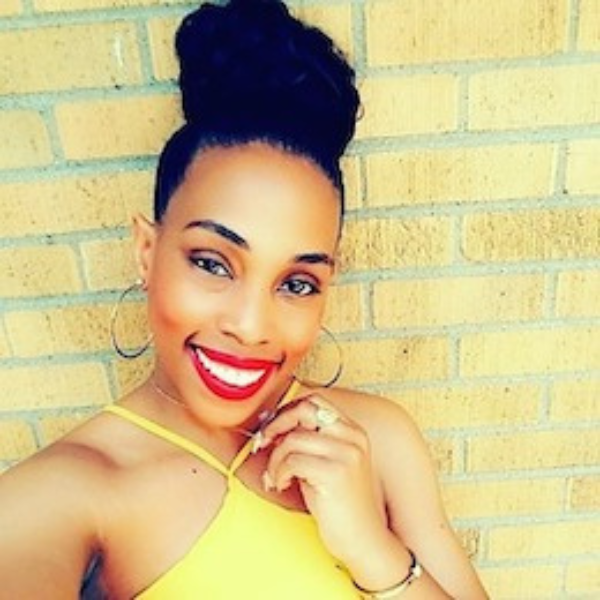Jasmine Parker, Youth and Teen Services Librarian

Parker spoke with the SIS about her experiences as a woman of color in the field of library and information science.
Jasmine graduated with a master’s degree in library and information science in 2011. She is now the Youth and Teen Services librarian at the Ferndale Public Library. She spoke with the School of Information Sciences about her experience at Wayne State and as a woman of color in the field of library and information science.
SIS: How did the MLIS program at WSU prepare you for you for your current position?
JP: It prepared me very well in the sense that I was able to go out. I had to go to different libraries. I remember those visits and I remember how hopeful, inspiring, and meaningful they were to me just because I got a chance to see what it was like.
Geographically speaking, I loved being at Wayne because you were in the heart of everything. There was so much culture … and when I was in grad school and took a children’s literature course I needed all of these children’s literature books, so I would go to the Detroit Public Library to get them. That was the first time, I think in my adult life, that I had seen a woman of color on desk. I just remember that something clicked inside of me when I saw her. I just remember thinking ‘If she’s here, if she’s doing this and she’s happy, I can be here and I can do this too.’ That’s when it clicked for me that I wanted to be a children’s librarian and that I could be. It was possible.
SIS: What made you choose to be a children’s librarian specifically?
JP: I think I naturally feel more comfortable with children. I have been volunteering most of my life within children’s ministry via church, and so there was just that natural relationship there. Also, with my theater degree and my love of acting and reading books, it just seemed like it was a good fit.
SIS: Describe the highlights of your current work as the Teen/Youth Librarian at Ferndale.
JP: We offer a bilingual story time for ages 0 to 4 that I co-lead and it really speaks to my heart’s passion when it comes to Spanish. It’s called ‘Vamos a Leer’ … and the cool thing is that the parents in the community have really stepped up to keep this program alive in the era of COVID.
One of the teen responsibilities that I oversee is a social justice book club. It’s called ‘Read Woke.’ The program was inspired by a school library media specialist in Georgia. It’s aimed at picking books that deal with social injustices and having conversations with youth about how we feel about those things.
SIS: Is there any one particular project that is your passion or has had more success than you could have hoped?
JP: Yes, I would definitely say ‘Vamos a Leer.’ When we would have a program in person, we would have maybe about 15 people show up. Once it moved to virtual only, we’ve racked up at least 200+ views. We are reaching people that we would have never been able to reach if we just offered it in person. I think with COVID we can be frustrated about the things that we lost, but I think public libraries will forever be changed. I don’t think we can rule out offering things virtually, even when things return back to some form of normalcy.
SIS: Thinking back on how you were inspired by the woman of color working the reference desk, what type of place do you think underrepresented voices have in libraries and information?
JP: I think that we have a place that is equal to that of our counterparts who are not of color. The place is knowing that we have the same right to it, even if we have to go through things that are discriminatory or prejudiced or racist. It’s still our right to be there. It’s so important that we’re there.
I have been open with my co-workers about my experiences of being a person of color on desk, because for some people, even in the 21st century, seeing a person on desk of color is shocking for them. Dealing with that and still dealing with the need to serve them and help them sometimes can be a challenge. But, I am grateful to be comfortable to have those conversations and to know at the end of the day that I earned my right to be here. In this profession, we need to know we are equal; that we can do this just as well as anybody else, and we need to own our story and know that we bring something different to the table.
SIS: Do you have any tips for current or prospective students who are going to WSU?
JP: I would encourage students to be very disciplined about it (online courses) and to not allow stuff to linger, to not procrastinate. Also, it is very important to work in a library when you are in the program. I think that it really helps to open up doors for you.